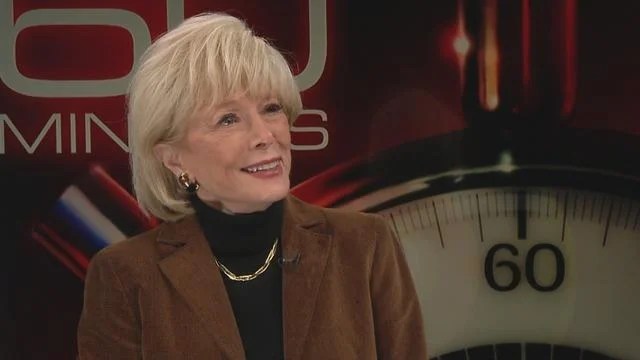For decades, the iconic television program "60 Minutes" has been a staple of investigative journalism, showcasing the work of some of the most talented reporters in the industry. With its compelling storytelling and in-depth analysis of current events, "60 Minutes" has not only informed the public but has also sparked conversations and brought about change. The show's reporters are at the forefront of uncovering the truth, often putting themselves in challenging situations to bring forth the facts that matter.
The role of a "60 Minutes" reporter goes far beyond just interviewing subjects; it involves extensive research, critical thinking, and a commitment to ethical journalism. These reporters are not just storytellers; they are truth-seekers, dedicated to shedding light on issues that impact society. From political scandals to social justice, the topics tackled by "60 Minutes" reporters are as diverse as they are essential.
As we delve into the world of "60 Minutes" reporters, we will explore their backgrounds, their contributions to journalism, and the impact they have had on audiences worldwide. Join us as we unravel the complexities of these remarkable individuals and the stories they bring to life on our screens.
Who Are the Notable 60 Minutes Reporters?
The legacy of "60 Minutes" is intertwined with several notable reporters who have made significant contributions to journalism. Let’s take a closer look at some of the most influential figures associated with the program.
Biography of Morley Safer
Morley Safer was one of the most prominent reporters on "60 Minutes," known for his unique storytelling style and dedication to uncovering the truth. He joined the program in 1970 and remained a pivotal figure until his retirement in 2016.
| Personal Details | Bio Data |
|---|---|
| Name | Morley Safer |
| Date of Birth | November 8, 1931 |
| Nationality | Canadian-American |
| Career Start | 1955 |
| Notable Works | "60 Minutes", "The Safer Reports" |
| Death | May 19, 2016 |
What Impact Did Morley Safer Have on Journalism?
Morley Safer's influence on journalism is profound. He was known for his ability to tackle complex subjects with grace and insight. His interviews often revealed the human side of the stories, making them relatable to viewers. Safer's dedication to integrity and fairness set a standard for aspiring journalists everywhere.
How Do 60 Minutes Reporters Prepare for Their Stories?
The preparation process for a "60 Minutes" reporter is meticulous and thorough. Reporters often spend weeks, if not months, researching their topics, conducting interviews, and verifying facts to ensure the accuracy of their stories. This dedication is what distinguishes "60 Minutes" from other news programs.
What Techniques Do 60 Minutes Reporters Use During Interviews?
During interviews, "60 Minutes" reporters utilize various techniques to elicit candid responses from their subjects. Some of these techniques include:
- Active Listening: Reporters pay close attention to their subjects, allowing for organic conversations that can lead to unexpected insights.
- Open-Ended Questions: By asking open-ended questions, reporters encourage their subjects to share more than just yes or no answers, leading to deeper discussions.
- Empathy: Establishing a rapport with subjects helps create a comfortable environment, allowing for more honest and revealing conversations.
What Challenges Do 60 Minutes Reporters Face?
Challenges faced by "60 Minutes" reporters can range from tight deadlines to the potential dangers of investigating sensitive topics. Additionally, reporters may encounter resistance from subjects who are unwilling to share information or who may have ulterior motives. Navigating these challenges requires a combination of skill, patience, and determination.
How Have 60 Minutes Reporters Adapted to Changing Media Landscapes?
With the rise of digital media and the decline of traditional television viewership, "60 Minutes" reporters have had to adapt their strategies to remain relevant. The program has embraced new technologies and platforms to reach a wider audience, utilizing social media to promote stories and engage with viewers.
What Role Does Investigative Journalism Play in Society?
Investigative journalism is crucial in holding power accountable and uncovering truths that may otherwise remain hidden. "60 Minutes" reporters play a vital role in this landscape, often tackling issues that affect the public interest. Their work not only informs but also empowers citizens to advocate for change.
What Future Lies Ahead for 60 Minutes Reporters?
The future of "60 Minutes" reporters looks promising as they continue to adapt to the evolving media landscape. With a commitment to high-quality journalism and storytelling, these reporters will undoubtedly remain at the forefront of investigative reporting. As they tackle new challenges and stories, their impact on society will continue to resonate.
In conclusion, the legacy of "60 Minutes reporters" is one of dedication, integrity, and a relentless pursuit of truth. Their work not only informs the public but also inspires future generations of journalists to follow in their footsteps. As we look ahead, it's clear that the essence of "60 Minutes" will continue to thrive in an ever-changing world.
Also Read
Unveiling The Charismatic Journey Of James RodaySimon Cowell And His Family: Understanding His Son's Journey
Barron Trump’s Girlfriend: Unraveling The Mystery
Understanding The Malakai Bayoh Tragedy: A Deep Dive
Leif Garrett: The Rise And Fall Of A Teen Idol
Article Recommendations
- Bruce Willis Demi Moore
- Mark Valley Daughter
- Adam Sandler Political Views
- Justin Fields Wife
- Sandra Draisaitl
- Tyler Hynes Children
- Adriana Chechik Boyfriend
- Tyus Jones And His Wife Carrie Jones
- How Much Does Shemar Moore Make Per Episode
- Nicholas Hagen Parents




